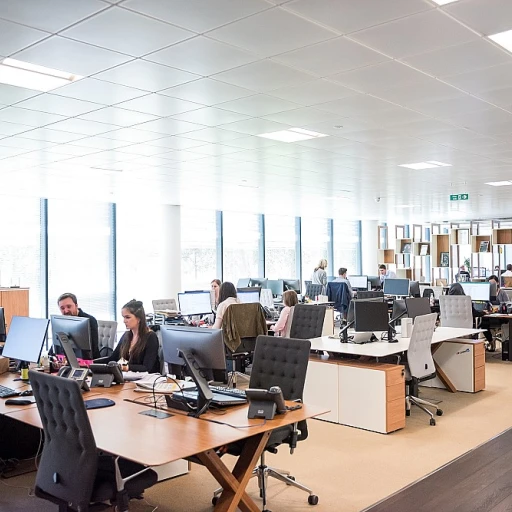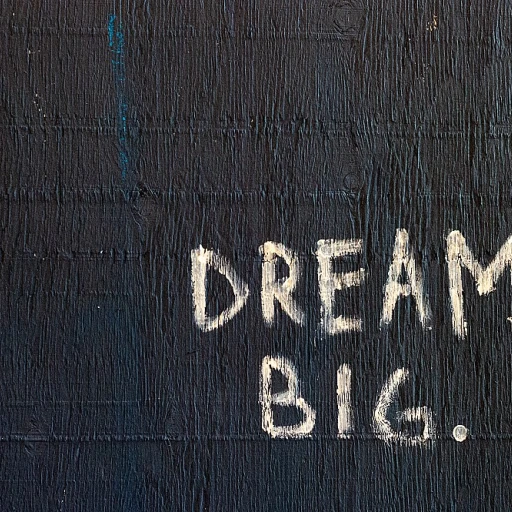
Understanding the value of peer recognition in interviews
Why Peer Recognition Matters in HR Interviews
Peer recognition is more than just a buzzword in the modern workplace. For HR professionals, it’s a direct reflection of how well you contribute to a positive work environment and support a culture of appreciation. When employees feel valued by their peers, it boosts employee engagement, strengthens company culture, and drives overall performance. In HR job interviews, sharing examples of peer recognition can help you stand out by showing your ability to foster employee appreciation and recognize the efforts of team members.
- Demonstrates alignment with company values: Sharing recognition examples shows you understand the importance of employee recognition programs and how they impact workplace culture.
- Highlights your influence on employee engagement: When you recognize the contributions of others, it signals your commitment to building a supportive work environment where employees feel appreciated.
- Shows real impact: Peer recognition stories reveal how your actions led to positive outcomes, such as improved team performance or increased employee engagement.
Employers look for HR candidates who not only understand recognition programs but also actively participate in them. By preparing to discuss how you recognize hard work and dedication, you show your readiness to contribute to a culture of appreciation. If you want more insights into what HR interviewers are seeking, check out these essential insights for HR job interviews.
In the next parts, you’ll learn how to select the right peer recognition examples and structure your stories for maximum impact, helping you make a memorable impression during your HR job interview.
Selecting the right peer recognition examples
Choosing Peer Recognition Stories That Reflect Your Impact
When preparing for HR job interviews, it’s important to select peer recognition examples that truly highlight your contributions and align with the company’s values. Not every recognition moment will have the same impact, so focus on those that best demonstrate your positive influence on the work environment and your commitment to employee appreciation.- Relevance to the role: Choose examples that connect with the responsibilities of the HR position you’re applying for. If the job emphasizes employee engagement or recognition programs, select stories where your actions improved team morale or helped employees feel valued.
- Alignment with company culture: Review the company’s mission and values. Pick recognition moments that show your understanding of culture appreciation and your ability to foster a supportive workplace culture.
- Demonstrated results: Highlight situations where your efforts led to measurable improvements, such as increased employee engagement, higher participation in recognition programs, or a noticeable boost in team performance.
- Peer-driven appreciation: Focus on examples where your peers or team members recognized your work dedication, collaboration, or leadership. These stories are powerful because they show how your actions made employees feel appreciated and contributed to a positive work environment.
- Variety of recognition: Consider including different types of recognition—formal awards, informal recognition messages, or shout-outs on social media. This demonstrates your adaptability and understanding of various employee recognition methods.
Structuring your peer recognition story for impact
Crafting a Memorable Peer Recognition Story
When you want to make an impression in an HR job interview, how you present your peer recognition story matters as much as the example itself. A well-structured story not only highlights your achievements but also demonstrates your understanding of employee appreciation, company values, and positive workplace culture. Start with the contextBriefly set the scene. Explain the work environment, the team, and the company culture. This helps interviewers understand the significance of your recognition. For example, was your recognition part of a formal employee recognition program, or did it come from a spontaneous act of appreciation from a peer? Describe the challenge or goal
Share what you and your team were working towards. Was it a project deadline, a company initiative, or improving employee engagement? This gives your story purpose and shows your dedication to the company’s success. Highlight your actions and contributions
Detail your specific efforts. Did you support a team member, lead a project, or help foster a culture of appreciation? Focus on how your actions contributed to the team and the company, and how they align with the organization’s values. Share the recognition moment
Describe how your peer or team members recognized your hard work. Was it through a recognition message, a mention in a meeting, or a company-wide announcement? If your company had a recognition program, mention how it made you and other employees feel valued and appreciated. Explain the impact
Discuss the positive outcomes. Did the recognition boost employee engagement, improve team performance, or strengthen the workplace culture? Emphasize how recognition can motivate employees and contribute to a positive work environment. Connect to company values
Link your story back to the company’s core values and how your actions and the recognition you received supported those values. This shows you understand the importance of alignment between individual contributions and organizational culture. Tips for clarity and impact:
- Keep your story concise and focused on the most relevant details.
- Use clear examples that reflect your understanding of employee appreciation and recognition programs.
- Show how your actions helped employees feel appreciated and engaged.
Common mistakes to avoid when sharing peer recognition
What to Avoid When Sharing Peer Recognition Stories
Sharing peer recognition in HR job interviews can be powerful, but it’s easy to make mistakes that weaken your message or distract from your strengths. Here are some common pitfalls to watch out for:- Overly Generic Examples: Avoid vague stories like “my team appreciated my hard work.” Instead, choose specific recognition examples that highlight your unique contributions and the positive impact on the company or team.
- Focusing Only on Yourself: While it’s important to showcase your achievements, peer recognition is about how your efforts supported the team or improved the workplace culture. Show how your actions helped employees feel valued or boosted employee engagement.
- Ignoring Company Values: Don’t forget to connect your story to the company’s values or recognition programs. Interviewers want to see that you understand how employee appreciation fits into a positive work environment and company culture.
- Missing the "Why" Behind the Recognition: Simply stating that you were recognized isn’t enough. Explain what you did, why it mattered, and how it contributed to team success or employee recognition efforts.
- Overusing Jargon: While HR professionals are familiar with terms like recognition program or employee engagement, keep your language clear and accessible. This helps interviewers from different backgrounds understand your impact.
- Neglecting the Outcome: Don’t just describe the recognition—share the results. Did your actions help employees feel appreciated? Did it improve workplace culture or drive better performance? Concrete outcomes make your story memorable.
- Forgetting to Mention Others: Recognition is often a team effort. Acknowledge the contributions of team members or peers to show you value collaboration and culture appreciation.
- Using Outdated or Irrelevant Examples: Select recent recognition messages or stories that align with the role you’re applying for. This shows you’re engaged with current employee recognition practices and understand what makes employees feel valued today.
Sample peer recognition examples for HR job interviews
Real-World Peer Recognition Stories That Resonate
Sharing specific examples of peer recognition during HR job interviews can help you stand out and demonstrate your alignment with company values and workplace culture. Here are a few sample scenarios that illustrate how to effectively present your experiences with employee appreciation and recognition programs:- Team Collaboration: "During a challenging project, my colleagues recognized my efforts in facilitating communication between departments. Their appreciation was shared through our company’s recognition program, highlighting my commitment to a positive work environment and strong team engagement. This acknowledgment made me feel valued and motivated the entire team to strive for success."
- Supporting Employee Engagement: "I was nominated for a peer recognition award after organizing a series of employee engagement activities. The recognition messages from team members emphasized how these initiatives improved our workplace culture and made employees feel appreciated. This experience reinforced the importance of fostering a culture of appreciation and employee recognition."
- Promoting Company Values: "A peer recognized my dedication to upholding our company values by sharing a story on our internal social media platform. The public appreciation not only boosted my morale but also encouraged others to embody the same values, strengthening our company culture and sense of belonging."
- Driving Performance Through Recognition: "After leading a successful onboarding program, several new employees expressed their gratitude through our recognition program. Their feedback highlighted how my support made them feel welcomed and engaged, which contributed to their early performance and integration into the team."
Tips for Presenting Recognition Examples
- Choose examples that clearly show your contributions and the positive impact on the team or company.
- Focus on how recognition made you and others feel appreciated and motivated.
- Highlight the connection between peer recognition and improved employee engagement or performance.
- Show how your actions supported a culture of appreciation and helped employees feel valued in the workplace.
How to handle follow-up questions about peer recognition
Responding Confidently to In-Depth Questions
When you share peer recognition stories in HR job interviews, interviewers may want to dig deeper. They often ask follow-up questions to understand your role, the impact of your actions, and how you contributed to a positive work environment. Being prepared for these questions helps you demonstrate your expertise in employee recognition and your understanding of company culture.- Clarify your involvement: Be ready to explain your specific contributions to the recognition program or example you shared. Did you initiate a peer recognition program? Were you part of a team that improved employee appreciation efforts?
- Highlight outcomes: Interviewers may ask about the results of your actions. Share how your efforts led to increased employee engagement, improved team morale, or a stronger culture of appreciation. Use concrete examples if possible.
- Connect to company values: Show how your approach to recognition aligns with the company’s values and culture. This demonstrates that you understand the importance of making employees feel valued and appreciated in the workplace.
- Discuss scalability: If asked, explain how your recognition initiatives could be scaled or adapted to fit a new work environment. This shows your strategic thinking and adaptability.
- Address challenges: Sometimes, interviewers want to know about obstacles you faced. Be honest about any difficulties and explain how you overcame them to ensure the success of the recognition program or employee engagement initiative.
Tips for Handling Unexpected Questions
- Stay authentic: Speak honestly about your experiences. Authenticity builds trust and credibility.
- Use recognition messages: If you have specific recognition messages or feedback from peers, mention them to add credibility to your story.
- Showcase team contributions: Emphasize how you recognized the efforts of team members and how this fostered a positive workplace culture.
- Relate to broader impact: Explain how peer recognition supports employee engagement, retention, and overall company success.
What Interviewers Are Looking For
Interviewers want to see that you understand the value of employee recognition and can contribute to a culture where employees feel appreciated. They may ask about:- Your experience with recognition programs
- How you encourage employees to recognize each other’s hard work
- Ways you measure the success of recognition initiatives
- How you use social media or internal platforms to promote appreciation













